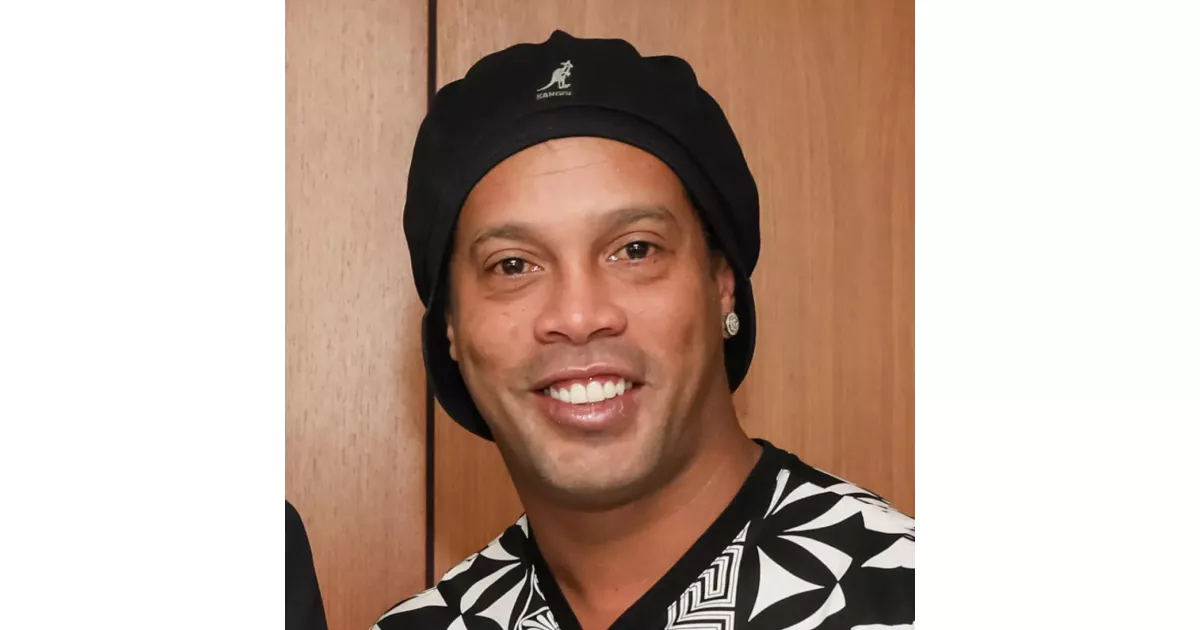Ronaldinho Gaúcho, a Brazilian former footballer, is considered one of the greatest players ever. He excelled as an attacking midfielder and winger, earning two FIFA World Player of the Year awards and a Ballon d'Or. His exceptional dribbling, trickery, and accuracy from free-kicks, along with his futsal background, made him a global icon. Ronaldinho's unique playing style, characterized by no-look passes and overhead kicks, showcased his ability to both score and create goals, earning him the nickname "O Bruxo". He achieved the unparalleled feat of winning the World Cup, Copa América, Confederations Cup, Champions League, Copa Libertadores, and Ballon d'Or.
1949: Birth of Ronaldinho's Mother
Ronaldinho's mother was born in 1949, a year that holds special significance as it later influenced Ronaldinho's jersey number choice.
1966: Pelé's World Cup Disappointment
This entry mentions Pelé's disappointing performance in the 1966 World Cup as a point of comparison to Ronaldinho's 2006 World Cup experience.
1970: Tostão's Criticism of Ronaldinho
In 2006, 1970 Brazil World Cup winner Tostão criticized Ronaldinho for lacking the aggression that he believed characterized great players like Maradona and Pelé.
1970: Pelé's World Cup Redemption
This entry notes that Pelé, unlike Ronaldinho, trained hard and redeemed himself at the 1970 World Cup following his poor performance in the 1966 tournament.
March 1980: Early Life and Family Tragedy
Born in March 1980, Ronaldinho's passion for football began at a young age. Tragedy struck when he was eight years old, as his father passed away in a drowning accident.
1997: FIFA U-17 World Championship Victory
In 1997, Ronaldinho played a key role in Brazil's victory at the FIFA U-17 World Championship in Egypt. He scored two goals during the tournament, including a penalty against Austria in the opening match. He received the Bronze Ball award for his outstanding performance, contributing to Brazil's impressive run, scoring 21 goals while conceding only two.
1998: Professional Debut for Grêmio
Ronaldinho began his professional football career in 1998, making his debut with Grêmio.
June 1999: Dominating Performance against Internacional
In June 1999, Ronaldinho delivered an exceptional performance in a derby match against Internacional, showcasing his skills and humiliating their captain, Dunga.
1999: First Attempt at Confederations Cup
In 1999, Ronaldinho participated in his first Confederations Cup, though he did not win.
1999: Copa América Victory with the "Three Rs"
In 1999, Ronaldinho, along with Ronaldo and Rivaldo, formed the renowned "Three Rs" attacking trio, leading Brazil to victory in the Copa América. Their exceptional synergy and skills were instrumental in their triumph.
1999: Copa América Victory and FIFA Confederations Cup
Ronaldinho had an eventful year in 1999, making his debut for Brazil in a 3-0 win against Latvia just before the Copa América. He played a significant role in Brazil's Copa América victory. He was also part of the Brazil squad for the 1999 FIFA Confederations Cup, where he scored in every match except the final, including a hat-trick against Saudi Arabia in the semi-final. He earned both the Golden Ball for best player and Golden Boot for top scorer, even though Brazil lost to Mexico in the final.
1999: South American Youth Championship and FIFA World Youth Championship
Ronaldinho participated in the South American Youth Championship, scoring three goals in nine appearances and helping Brazil secure third place in 1999. He then joined the FIFA World Youth Championship in Nigeria, where he scored three goals, including two in a 4-0 win against Croatia in the Round of 16. Brazil was ultimately eliminated in the quarter-finals by Uruguay.
2000: Summer Olympics in Sydney
Ronaldinho represented Brazil at the 2000 Summer Olympics in Sydney with the U23 team. Despite a strong start in the Pre-Olympic Tournament, where he scored nine goals in seven matches, Brazil faced elimination in the quarter-finals by the eventual gold medalist, Cameroon.
August 2001: League Debut for PSG
In August 2001, Ronaldinho made his league debut for Paris Saint-Germain (PSG), coming on as a substitute in a draw against Auxerre.
2001: Coupe de la Ligue and Controversy
During his first season with PSG in 2001, Ronaldinho played a key role in helping the team reach the semi-finals of the Coupe de la Ligue. However, his season was marked by conflicts with manager Luis Fernández, who criticized his off-field activities.
2001: Transfer to Paris Saint-Germain
In 2001, Ronaldinho joined French club Paris Saint-Germain on a five-year contract.
2001: Failed Transfer to Arsenal
Ronaldinho's proposed move to Arsenal in 2001 fell through due to work permit issues.
March 2002: Victory Against Troyes
On March 16, 2002, Ronaldinho scored two goals, securing a win for PSG against Troyes.
October 2002: Two Goals Against Marseille
Ronaldinho scored two remarkable goals in October 2002 during PSG's victory against their rivals, Marseille.
2002: First World Cup Appearance
Ronaldinho made his first World Cup appearance in 2002, joining forces with Ronaldo and Rivaldo to form the formidable "Three Rs" attacking trio. The tournament was held in South Korea and Japan, and he played in five matches, scoring two goals and providing three assists. He scored his first World Cup goal in a group stage match against China PR, which Brazil won 4-0.
2002: Nike's "Secret Tournament" Commercial
Ronaldinho was featured in Nike's iconic "Secret Tournament" commercial directed by Terry Gilliam in 2002.
February 2003: Goal of the Season
In February 2003, Ronaldinho scored a memorable goal against Guingamp, which was later voted as the goal of the season.
September 2003: Barcelona Debut and First La Liga Goal
Ronaldinho made his debut for Barcelona in July 2003 and scored his first official goal for the team in a match against Sevilla in September 2003.
2003: Confederations Cup Elimination
In 2003, Ronaldinho and the Brazilian national team were eliminated in the group stage of the Confederations Cup.
2003: Second Attempt at Confederations Cup
Ronaldinho's second attempt to win the Confederations Cup in 2003 ended in disappointment.
2003: Joining Barcelona
Ronaldinho's transfer to Barcelona in 2003 marked the beginning of a legendary chapter in his career.
April 2004: Victory Against Real Madrid
Ronaldinho played a crucial role in Barcelona's victory over their rivals, Real Madrid, at the Bernabéu in April 2004, ending a seven-year losing streak for Barcelona at that stadium.
December 2004: FIFA World Player of the Year
In December 2004, Ronaldinho was named FIFA World Player of the Year, marking a high point in his career and reflecting his exceptional skills and contributions to the sport.
2004: Ronaldinho Statue Erected
In 2004, a statue of Ronaldinho was erected in Chapecó to celebrate his first FIFA World Player of the Year award.
2004: Left Out of Copa América Squad
Ronaldinho was left out of Brazil's 2004 Copa América squad as coach Carlos Alberto Parreira decided to rest his star players.
February 2005: Birth of Son
Ronaldinho welcomed the birth of his son, João, with Brazilian dancer Janaína Mendes in February 2005.
March 2005: Two Goals Against Chelsea
Although Barcelona was eliminated from the Champions League in March 2005 after a loss to Chelsea, Ronaldinho scored both goals for his team during the second leg of the match.
May 2005: Assist for Messi's First Goal
On May 1, 2005, Ronaldinho provided the assist for Lionel Messi's first-ever goal for Barcelona, marking a significant moment in Messi's career and highlighting Ronaldinho's ability to create scoring opportunities for his teammates.
September 2005: Contract Extension with Barcelona
In September 2005, Ronaldinho signed a two-year extension to his contract with Barcelona. This decision came after he declined a longer contract offer.
September 2005: FIFPro World Player of the Year and Other Awards
Ronaldinho's achievements were recognized in September 2005 when he received the inaugural FIFPro World Player of the Year award. He also earned a spot on the 2005 FIFPro World XI and was named the 2005 European Footballer of the Year.
2005: Last Goal Before Scoring Drought
Before his two goals against Chile in March 2007, Ronaldinho's last goal for Brazil had been in the 2005 Confederations Cup final.
2005: Standing Ovation at Bernabéu
In 2005, Ronaldinho received a standing ovation from Real Madrid fans while playing for Barcelona at the Bernabéu stadium, highlighting his exceptional talent and sportsmanship.
2005: Viral Nike Advertisement
In 2005, Ronaldinho starred in a Nike advertisement showcasing his juggling skills, which went viral on YouTube, becoming the platform's first video to reach one million views.
February 2006: UNICEF Role
Ronaldinho took on an official role with UNICEF, the United Nations Children's Fund, starting in February 2006.
November 2006: 50th Career League Goal and Bicycle Kick Goal
In November 2006, Ronaldinho scored his 50th career league goal against Villarreal. In the same match, he scored a spectacular overhead bicycle kick goal, which he later described as a dream goal he'd had since childhood.
2006: World Cup Disappointment
Despite high expectations, Ronaldinho and the heavily-marketed "magic quartet" had a disappointing 2006 World Cup, losing to France in the quarter-finals.
2006: Backlash After World Cup Elimination
Following Brazil's elimination from the 2006 World Cup, fans and media criticized the team's performance, and vandals destroyed Ronaldinho's statue. The criticism intensified after Ronaldinho was seen partying in Barcelona shortly after the team's elimination.
2006: Decline in Performance at Barcelona
Following a successful period, Ronaldinho's performance at Barcelona declined, attributed partly to reduced dedication.
2006: Third Place in FIFA World Player of the Year
In 2006, Ronaldinho finished third in the FIFA World Player of the Year award, behind Fabio Cannavaro and Zinedine Zidane.
2006: High Endorsement Earnings
In 2006, Ronaldinho was one of the world's highest-paid athletes, earning over $19 million from endorsements.
2006: Launch of "Ronaldinho Gaúcho" Comic Strip
Mauricio de Sousa created a comic strip titled "Ronaldinho Gaúcho," a fictionalized account of Ronaldinho's childhood, which launched in 2006.
2006: Richard Williams Calls Ronaldinho a "Genius"
Writing in The Guardian in 2006, Richard Williams described Ronaldinho as a "genius."
March 2007: Champions League Elimination and Injury
In March 2007, Ronaldinho and Barcelona were eliminated from the Champions League by Liverpool. He also missed a charity match due to an injury sustained in El Clásico against Real Madrid. Despite scoring a career-best 21 league goals that season, Barcelona lost the title to Real Madrid.
March 2007: First International Goal in Two Years
Ronaldinho ended a nearly two-year scoring drought for the Brazilian national team in March 2007 when he scored twice against Chile.
December 2007: Madame Tussauds Wax Figure
A wax sculpture of Ronaldinho was unveiled at Madame Tussauds in Hong Kong in December 2007.
2007: Spanish Citizenship
Ronaldinho became a Spanish citizen in 2007.
2007: Injury-Plagued Season and Decline
Ronaldinho's 2007-2008 season was hampered by injuries, and his partying lifestyle and lack of dedication to training were blamed for his decline in performance.
February 2008: 200th Career Match for Barcelona
Ronaldinho played his 200th career match for Barcelona against Osasuna in February 2008.
May 2008: Need for a "New Challenge"
Barcelona club president Joan Laporta stated in May 2008 that Ronaldinho needed a "new challenge" and a new club to revive his career, suggesting a decline in his performance and dedication.
July 2008: Move to AC Milan
In July 2008, Ronaldinho rejected a lucrative offer from Manchester City to join AC Milan on a three-year contract.
2008: Debut Goals, First Brace, and Disappointing Season at AC Milan
Ronaldinho scored his first goal for AC Milan in a derby win against Inter Milan in 2008. He also scored his first brace for the club that year. However, despite a strong start, his season was marked by fitness issues and criticism for his off-field lifestyle, leading to a decline in performance.
January 2010: Goals Against Juventus and First Hat-trick for AC Milan
Ronaldinho scored two crucial goals against Juventus in January 2010, leading AC Milan to victory. He then went on to score his first hat-trick for the club against Siena, marking a resurgence in his performance.
May 2010: Exclusion from 2010 World Cup Squad
Despite returning to good form, Ronaldinho was left off of Dunga's 2010 World Cup squad, a decision that was seen by some as a signal of a move away from Brazil's traditional style of play.
2010: Anti-racism Exhibition Match and Farewell to Barcelona
In 2010, Ronaldinho played in an anti-racism exhibition match, his last for Barcelona. He expressed regret for not playing longer with Messi in an open letter to Barcelona fans and players, reflecting on his time at the club.
2010: Edgar Davids' Praise for Ronaldinho
In 2010, Ronaldinho's former Barcelona teammate Edgar Davids called him "the best player that I ever played with."
2010: Salary Details at AC Milan
Information about Ronaldinho's salary details at AC Milan was released in 2010.
2010: Nike's "Write the Future" Commercial
Ronaldinho was featured in Nike's "Write the Future" commercial in 2010, directed by Alejandro González Iñárritu, which also became a viral sensation.
January 2011: Joining Flamengo
Ronaldinho joined Flamengo in January 2011, signing a contract that would last until 2014. He received a warm welcome from the fans.
February 2011: First Goal and First Trophy with Flamengo
Ronaldinho scored his first goal for Flamengo in February 2011, contributing to a victory. Later that month, he scored the winning goal in the Taça Guanabara final, securing his first trophy with the team.
July 2011: Hat-trick Against Santos
In a thrilling match in July 2011, Ronaldinho scored a hat-trick for Flamengo, leading them to a 5-4 comeback victory against their rivals, Santos.
September 2011: Return to the National Team
In September 2011, Ronaldinho returned to the Brazilian national team under coach Mano Menezes.
2011: UNAIDS Advocacy
Ronaldinho partnered with the Joint United Nations Programme on HIV/AIDS to raise awareness about the disease among young people in 2011.
May 2012: Lawsuit Against Flamengo and Contract Termination
In May 2012, Ronaldinho took legal action against Flamengo over unpaid wages, leading to the cancellation of his contract.
June 2012: Debut and First Goal for Atlético Mineiro
Ronaldinho debuted for Atlético Mineiro in June 2012 and scored his first goal for the club from a penalty later that month.
June 2012: Joining Atlético Mineiro
Ronaldinho joined Atlético Mineiro in June 2012 on a six-month contract after leaving Flamengo. He chose the number 49 jersey, a tribute to his mother's birth year.
2012: Bee Species Named After Ronaldinho
Brazilian entomologists named a newly discovered bee species "Eulaema quadragintanovem" in 2012, honoring Ronaldinho and his mother.
April 2013: 100th Cap for Brazil
Ronaldinho started for Brazil against Chile on April 24, 2013, marking his 100th game played for the national team.
2013: Past His Prime but Still Mobbed by Fans
Despite being past his peak in 2013, Ronaldinho's popularity remained evident as he was mobbed by fans at the FIFA Club World Cup.
2013: Successful Season and Bola de Ouro Award
In 2013, Ronaldinho played a vital role in Atlético Mineiro's successful season, helping them secure second place in the Brasileirão and qualify for the Copa Libertadores. His contributions earned him the Bola de Ouro award for the best player in the league.
2013: FIFA Club World Cup
In December 2013, Ronaldinho participated in the FIFA Club World Cup in Morocco, where his team, Atlético, faced Raja Casablanca in the semi-final. Despite Ronaldinho scoring a free kick, Atlético lost 3-1. The Raja Casablanca team, big fans of Ronaldinho, celebrated by rushing towards him after the final whistle, seeking souvenirs and even playfully stripping him down to his underpants.
2013: Copa Libertadores Title and South American Footballer of the Year
Ronaldinho played a key role in Atlético Mineiro's victory in the Copa Libertadores in 2013, contributing significantly with goals and assists. His exceptional performance, even six years past his prime, earned him the title of South American Footballer of the Year.
January 2014: Contract Renewal with Atlético
In January 2014, Ronaldinho decided to renew his contract with Atlético.
September 2014: Signing with Querétaro
Following a period as a free agent, Ronaldinho received contract offers from various clubs, including Basingstoke Town and Chennai Titans. However, he ultimately chose to sign a two-year contract with the Mexican club Querétaro on September 5, 2014.
October 2014: Free Kick Goal Against Atlas
On October 30, 2014, during an away match against Atlas at the Estadio Jalisco, Ronaldinho scored a remarkable free kick goal for Querétaro.
2014: Exclusion from 2014 World Cup Squad
Ronaldinho was not selected for the Brazilian national team that played in the 2014 World Cup.
2014: Contract End with Flamengo
Ronaldinho's contract with Flamengo, which began in 2011, was set to conclude in 2014.
March 2015: Social Media Popularity
By March 2015, Ronaldinho was the sixth most popular athlete on Facebook, demonstrating his global influence.
April 2015: Standing Ovation at Estadio Azteca
Ronaldinho delivered an exceptional performance in April 2015 while playing for Querétaro against Liga MX title-holders América at the Estadio Azteca. He scored two goals, leading his team to a 4-0 victory. His outstanding display earned him a standing ovation from the spectators, predominantly América supporters, which moved him to tears. This marked the second instance in his career where he received such an accolade from opposing fans, the first being from Real Madrid fans during his time at Barcelona in 2005.
May 2015: Liga MX Playoffs and Final
Ronaldinho's two penalties in consecutive matches secured Querétaro's spot in the Liga MX playoffs. On May 17, 2015, they progressed to the semi-finals after beating Veracruz 4–3 on aggregate, with Ronaldinho scoring a free kick. Querétaro eventually made it to the final but lost to Santos Laguna 3-5 on aggregate.
June 2015: Departure from Querétaro
At 35 years old, Ronaldinho announced his departure from Querétaro in June 2015. He expressed his gratitude to the Mexican people and the fans for their support during his time at the club.
July 2015: Return to Brazil and Fluminense Stint
In July 2015, Ronaldinho returned to Brazil and signed an 18-month contract with Fluminense. However, his time at the club was short-lived, and he departed by mutual agreement in September after failing to meet expectations and facing criticism from fans.
2015: End of "Ronaldinho Gaúcho" Comic Strip
The "Ronaldinho Gaúcho" comic strip concluded its run in 2015.
July 2016: Goa 5's and Paralympics Ambassador
Ronaldinho joined the Goa 5's, a futsal team in India, in July 2016, playing alongside football legends like Ryan Giggs and Paul Scholes. After two games, he departed to become an ambassador for the 2016 Summer Paralympics in Rio de Janeiro.
February 2017: Barcelona Ambassador
Ronaldinho returned to his former club, Barcelona, as an ambassador in February 2017.
October 2017: Delhi Dragons in Premier Futsal League
Ronaldinho joined the Delhi Dragons in the Premier Futsal League from September to early October 2017, displaying his skills in the fast-paced indoor version of football. He had a good run, scoring 16 goals in eight games.
January 2018: Retirement from Football
Ronaldinho officially retired from professional football in January 2018. He ended his career as one of eight players to have won the FIFA World Cup, UEFA Champions League, and Ballon d'Or, a testament to his extraordinary career.
January 2018: ESPN Article Publication
This entry indicates that the information provided comes from an ESPN article written by Tim Vickery, published in January 2018.
July 2018: World Soccer Coin Partnership
In July 2018, Ronaldinho partnered with World Soccer Coin (WSC) to launch a new cryptocurrency aimed at supporting football development projects.
2018: Appearance in "Kickboxer: Retaliation"
Ronaldinho made an appearance in the American martial arts film "Kickboxer: Retaliation" in 2018.
July 2019: Property Seizure and Passport Confiscation
In July 2019, authorities seized 57 properties owned by Ronaldinho and confiscated his passports due to unpaid taxes and fines related to environmental violations.
2019: Recognition by FourFourTwo and Willian
In 2019, FourFourTwo named Ronaldinho one of the 101 greatest football players of the last 25 years, while his compatriot Willian called him the greatest player of all time.
March 2020: Arrest in Paraguay
Ronaldinho and his brother were arrested in Paraguay in March 2020 for allegedly using fake passports to enter the country.
August 2020: Release from Paraguayan Prison
After spending several months in a Paraguayan prison, Ronaldinho and his brother were released in August 2020 following a plea deal and payment of fines.
October 2020: Statement on Nagorno-Karabakh Conflict
Ronaldinho publicly expressed his solidarity with the people of Azerbaijan regarding the Nagorno-Karabakh conflict in October 2020.
2021: Appearance in "Barcelona Dreaming"
Ronaldinho was featured as a character in Rupert Thomson's novel "Barcelona Dreaming," published in 2021.
Mentioned in this timeline

Pepsi is a cola-flavored carbonated soft drink and the flagship...
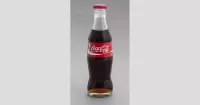
Coca-Cola is a globally recognized cola soft drink produced by...
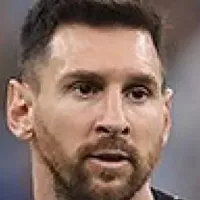
Lionel Messi is an Argentine professional footballer widely considered one...
Facebook is a social media and networking service created in...
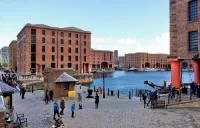
Liverpool is a port city and metropolitan borough located in...
Nigeria is a West African nation the most populous in...
Trending

10 months ago Caitlin Clark, Serena Williams at NFL Meeting; Flag Football for LA28.
8 months ago Queens 10K Returns: Race, Festival, Kids Run & Community Engagement in 2025
4 months ago John Deere appointments, Origin Agritech restructure, and crowds at YP Field Days in September 2025.

2 months ago Belichick Eyes Wake Forest Amidst Giants Job Rumors: McDaniels Also in the Mix?

Joe Montana nicknamed Joe Cool and The Comeback Kid is a Hall of Fame quarterback who played seasons in the...
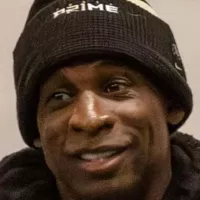
7 months ago Deion Sanders excited to rejoin Colorado, praises Joey McGuire, addresses health concerns.
Popular

Thomas Douglas Homan is an American law enforcement officer who...

William Franklin Graham III commonly known as Franklin Graham is...

XXXTentacion born Jahseh Dwayne Ricardo Onfroy was a controversial yet...

Jupiter is the fifth and largest planet from the Sun...

Instagram is a photo and video-sharing social networking service owned...

KFC or Kentucky Fried Chicken is an American fast-food chain...
